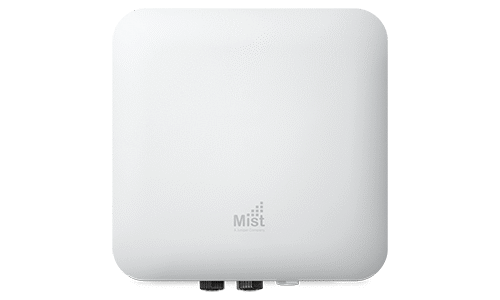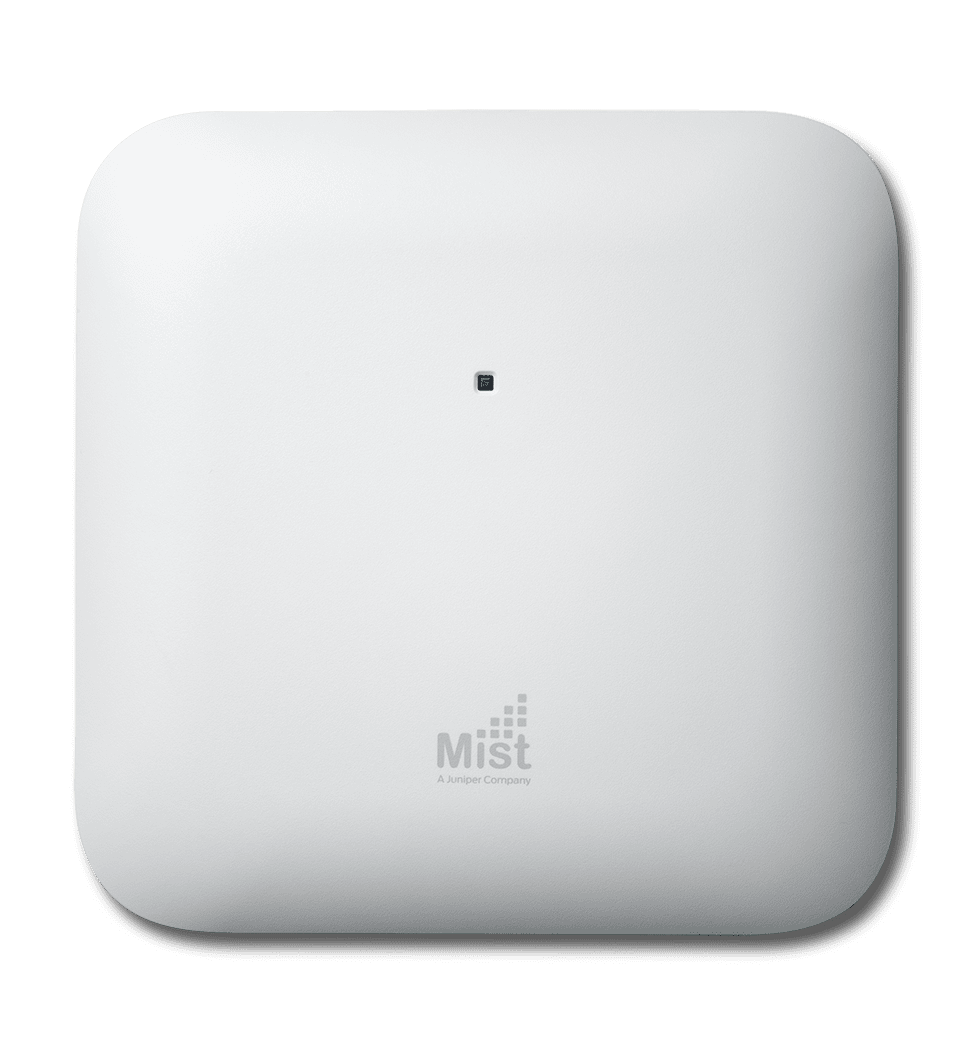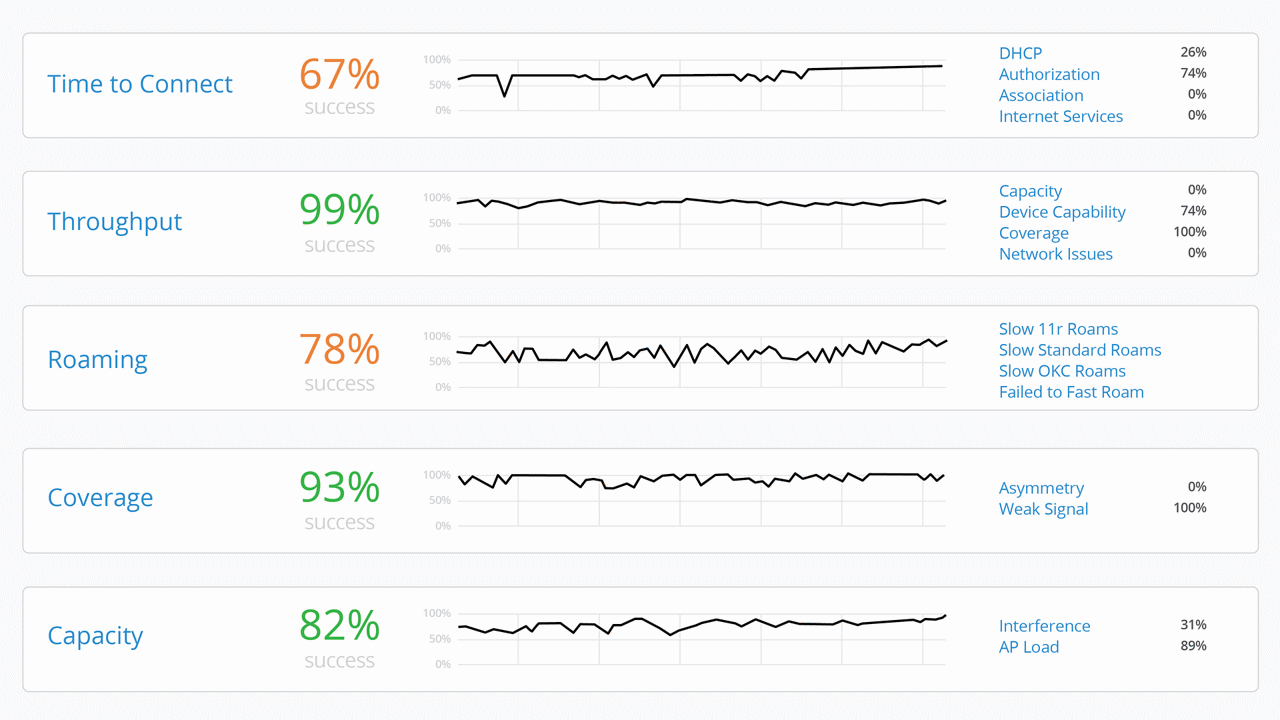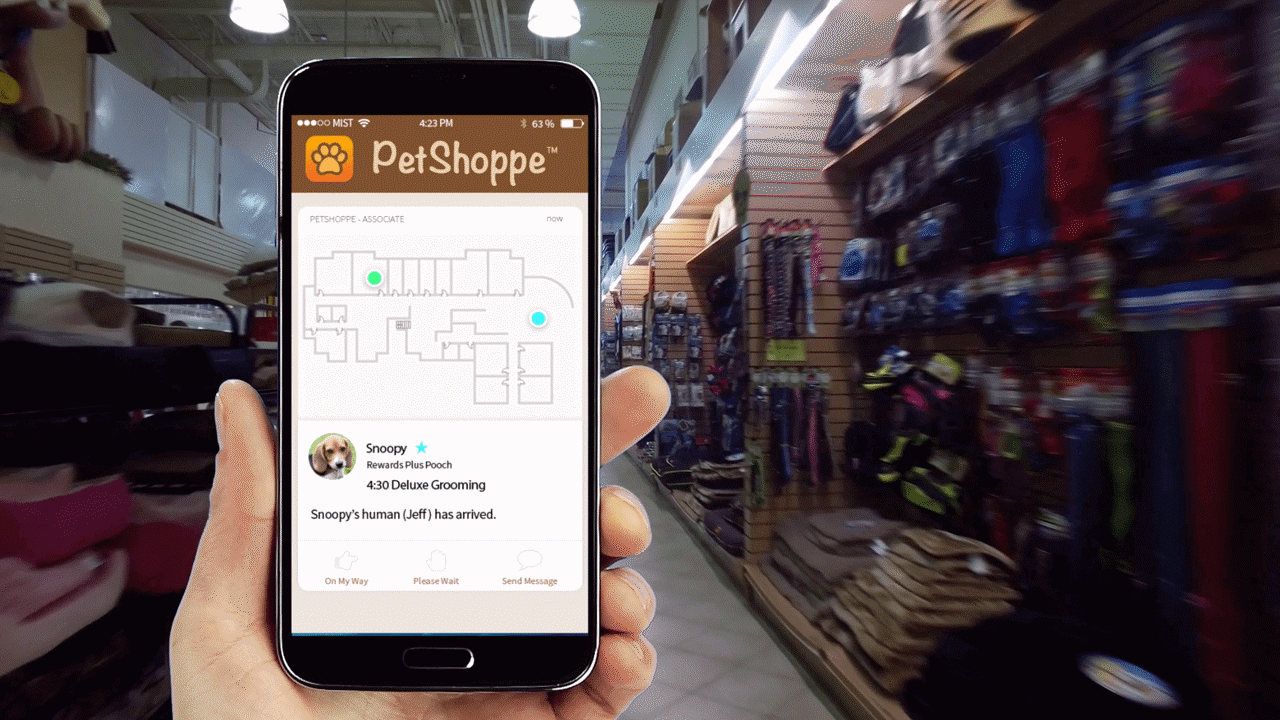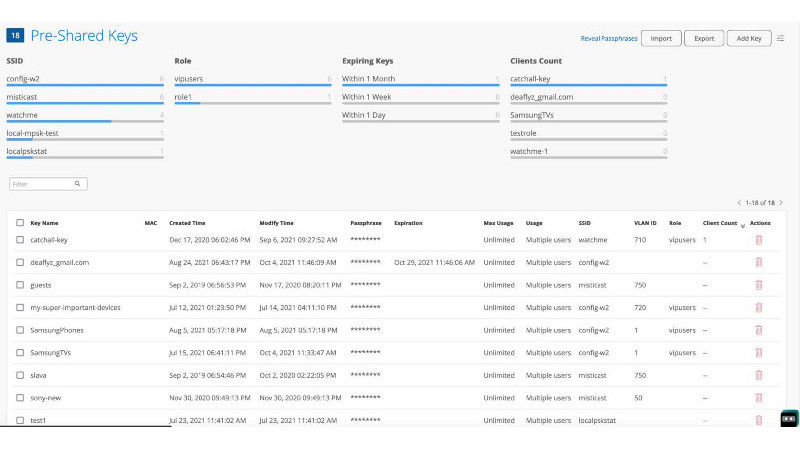Customer Success Story

UMass Amherst switches to Juniper for next-gen Wi-Fi
The University of Massachusetts Amherst is the flagship and largest school of the UMass system, with highly ranked programs in business, computer science, healthcare, and the social sciences. It's also the largest public research university in New England.
After 15 years with the same network vendor, UMass Amherst made a radical change: It switched to AI-driven wireless from Juniper, not only to optimize the digital experience, but also to support student engagement, campus health and safety, and smart buildings.
Overview
| Company | The University of Massachusetts Amherst |
| Industry | Education |
| Products used | AP63, AP43, Juniper Wi-Fi Assurance, Juniper User Engagement, Juniper Mist IoT Assurance |
| Region | Americas |

120,000
Devices connected to the network
Faster resolution
Wi-Fi-related issues with AI-driven troubleshooting
2 to 4 hours
For student workers to install all-new Wi-Fi in a building
Digital foundation
For student success, health and safety, and smarter campus operations
Make Wi-Fi as reliable as power
“Wireless is a utility, like the electricity coming out of the wall,” says Jim Mileski, chief technology officer at UMass Amherst. “The simpler we make wireless for the university, the better it is for everyone.”
But the old campus Wi-Fi was far from steady. In some residence halls, there were as many as five Wi-Fi complaints every day—and that was just from students who bothered to report their frustration to IT.
Reliable Wi-Fi took on new urgency as in-person learning resumed in 2021.
“Post-COVID, the majority of our classes are multimodal,” says Mileski. “The expectations for network uptime are much greater now.”
Then there is the constant activity of a university campus.
“A university is a special environment when it comes to Wi-Fi,” he continues. “Every hour, tens of thousands of people move from building to building. That can cause chaos in a wireless network.”

Better user experiences through cloud services
UMass Amherst looked to the cloud for its next-gen Wi-Fi. “The days of wireless APs being a differentiator are done,” says Mileski. “It’s about how does the solution make my life easier.”
The university decided to try out AI-driven wireless from Juniper in the residence halls with the most Wi-Fi complaints. After two months passed with no Wi-Fi support tickets, the university began rolling out Juniper wireless to the rest of campus.
Juniper’s cloud-based microservices architecture freed UMass Amherst from managing old-school wireless LAN controllers and delivered a scalable, agile, and reliable Wi-Fi environment.
“Cloud simplifies the network and improves resiliency,” says Mileski. “We have less infrastructure to manage in our data center.”
The Juniper wireless is simple and easy to manage, with AI-driven analytics that help diagnose problems and give the IT the ability to proactively troubleshoot rather than react to users’ Wi-Fi complaints.
Juniper AP43 and AP63 access points deliver fast, reliable Wi-Fi 6 connectivity. Juniper cloud services, including Juniper Mist Wi-Fi Assurance and Juniper Marvis Virtual Network Assistant, give IT clear visibility into the user experience and can speed troubleshooting when issues arise.
Zero touch provisioning, through the Mist portal and mobile app, made setting up thousands of access points a study in simplicity.
“With our previous Wi-Fi, outside consultants took two weeks to deploy a new building,” he says. “With Juniper, student workers can deploy a building in two to four hours.”

With AI, Wi-Fi becomes more than a utility
“With Juniper, we have better visibility into the student experience,” says Mileski. “If a student reports that their video call dropped, we can use Mist analytics to figure out what happened.”
UMass Amherst is going beyond utilitarian Wi-Fi to support student engagement as well as campus health and safety.
The university is working to create a home-like experience in its residential halls. With students bringing an average of seven devices to campus, the ability to support bring your own device (BYOD) and Internet of Things (IoT) is critical.
One capability of Juniper Mist IoT Assurance is private pre-shared keys, which function similarly to passwords, allowing students to create their own private microsegments for their smart TVs, gaming consoles, laptops, tablets, and other Wi-Fi devices.
Looking ahead, the AI-driven Wi-Fi network will support streamlined campus operations and green building initiatives. IoT-driven insights will allow for predictive maintenance on campus buses. Smart building operations, including automatic doors and environmental controls, will be enabled through Wi-Fi.
Now that Mileski has banished wireless controllers, the on-premises phone system is next. “We can roll out wireless VoIP because of the strength of the Juniper wireless,” he says.



Press Release: UMass Amherst Switches to Juniper Networks AI-Driven Wi-Fi
Published September 2022

























